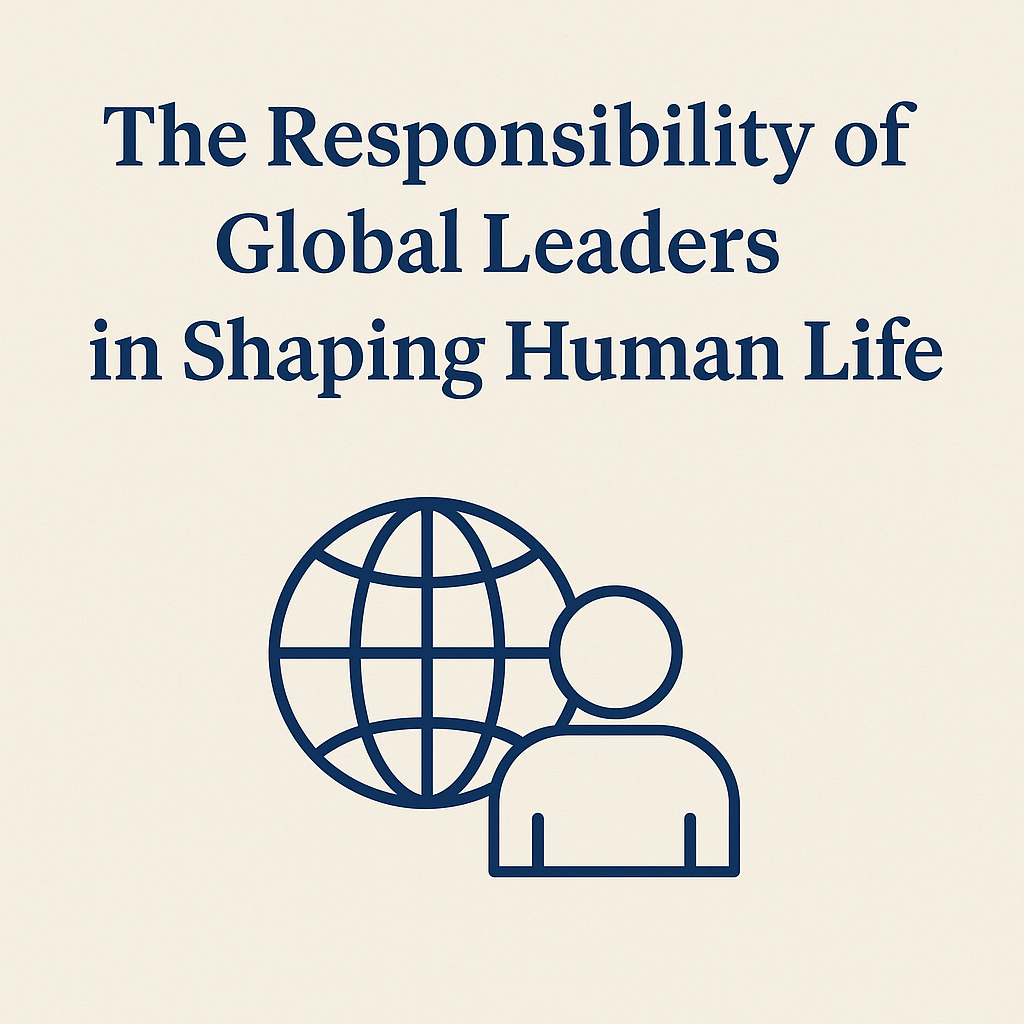
In a world marked by deep interdependence, global leaders hold a responsibility that is both immense and inescapable. Their decisions influence not only the fate of their own nations but the wellbeing of billions across the globe. From international conflicts to climate crises, from economic policies to human rights, global leaders are entrusted with the power to either uplift humanity—or to imperil it. With such power comes an equally profound responsibility: to lead with wisdom, justice, and a vision that transcends narrow self-interest.
1. Stewardship Over Peace and Security
Global leaders bear the moral duty to safeguard peace. Their words and actions can ignite wars or inspire diplomacy. In times of rising geopolitical tensions, it is their responsibility to prioritize dialogue over dominance. Reckless decisions—such as unilateral military interventions or support for authoritarian regimes—can destabilize entire regions, leading to war, displacement, and human tragedy. Responsible leadership means recognizing that the lives lost in distant lands are no less valuable than those at home.
2. Accountability for Global Justice
True leadership requires empathy and accountability for global inequalities. When leaders design trade agreements, enforce immigration policies, or respond to global crises like famine or pandemics, they must consider the human impact beyond borders. Their responsibility is to uphold principles of justice, equity, and shared prosperity. Hoarding resources, erecting barriers, or exploiting weaker nations are betrayals of this duty. Global leaders must act not as owners of privilege, but as guardians of fairness.
3. Duty to Address the Climate Crisis
The climate emergency is a defining test of global leadership. The consequences of inaction—rising seas, collapsing ecosystems, mass displacement—will be borne most heavily by the poorest and youngest among us. Leaders of wealthy, high-emitting nations in particular carry the responsibility to take bold, urgent action. Climate leadership demands not just policy change, but moral clarity: to act not for political convenience, but for the survival and dignity of future generations.
4. Defending Human Rights and Democratic Values
It is the solemn responsibility of global leaders to defend human rights—freedom of speech, religion, movement, and equality before the law. In the face of growing authoritarianism, censorship, and surveillance, silence is complicity. Leaders must speak out against oppression and support civil society at home and abroad. Their commitment to democracy and dignity should not waver based on political alliances or economic interests.
5. Leading with Integrity in the Age of Crisis
In an era of overlapping crises—pandemics, wars, technological disruption—global leadership is not a privilege; it is a burden of service. Leaders must rise above partisanship, ego, and short-term popularity. Their responsibility is to act with foresight, humility, and resolve. In the face of complexity, the question should always be: what decision protects life, preserves peace, and promotes justice?
<b> Conclusion </b>
The responsibilities of global leaders are no longer confined within national borders. In a globalized world, their actions shape the course of humanity. Leadership today demands not only power and strategy, but conscience and courage. It demands vision—not for domination, but for cooperation; not for conquest, but for compassion. When global leaders embrace their responsibility with moral clarity, they become not just heads of state—but stewards of our shared future.